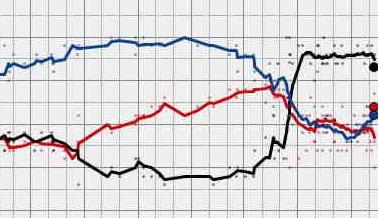Update on Polling about Human Biotechnologies

It has been for years a truth universally acknowledged that heritable human genome editing – “designer baby” technology – should not proceed without widespread public support. Some surely say that disingenuously, but many of us do consider public approval to be a necessary (though not sufficient) prerequisite. But how would anyone know what “the public” accepts?
Opinion pollsters offer one way of gauging public sentiment, and where people think lines should be drawn, on contentious issues. CGS has for many years been compiling poll results, in some cases dating back to the last century. The latest update is now available.
Several organizations conduct regular polls that demonstrate changes in public opinion. Gallup has been conducting a “state of moral values in this country today” survey since 2001. Cloning humans was on that list from 2001 to 2023, and the percentage of Americans who thought human cloning acceptable oscillated in a very narrow range: it was 11% in 2007, and 11% in 2022; it hit 16% in 2018 but that was clearly an outlier. As of just this year, Gallup has quietly stopped asking. The moral values questionnaire continues, and some of its results do show social change: divorce is much more acceptable now, as are same-sex relationships. But human cloning, in Gallup’s view as well as in broader circles, is moot.
Heritable genome editing, on the other hand, continues to be hotly contested. The major surveys measure opinion on it by asking about, for example, “Changing an unborn baby’s genetic characteristics to make a baby more intelligent” or “… to reduce the risk of a serious disease that could occur over the baby’s lifetime.” Pew has specifically tied these issues to potential impacts on social equity, and linked AI and human enhancement technologies.
Most surveys have yet to catch up on a newer technology that carries eugenic implications. “Polygenic embryo screening” involves making many IVF embryos with the same biological parents, and analyzing them genetically using proprietary algorithms. Purveyors and promoters claim that parents can then choose among them, for health or intelligence or whatever characteristics the parents desire and the laboratory can sell. Ethicists are grappling with the implications, and sophisticated analysts of public opinion are delving in.
The most recent update to the CGS collection of polls does include some academic surveys covering these latest issues. There will undoubtedly be more to come.



